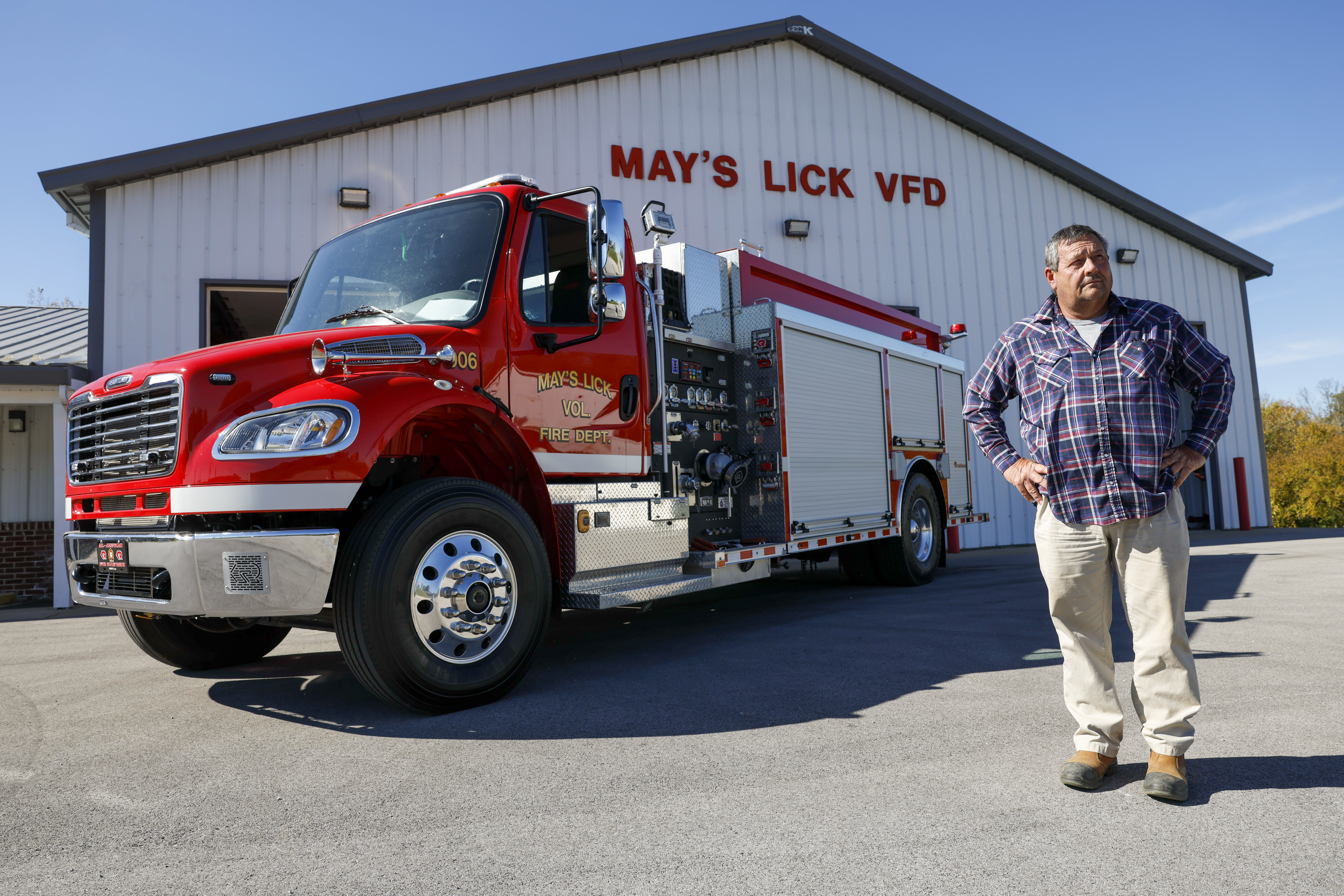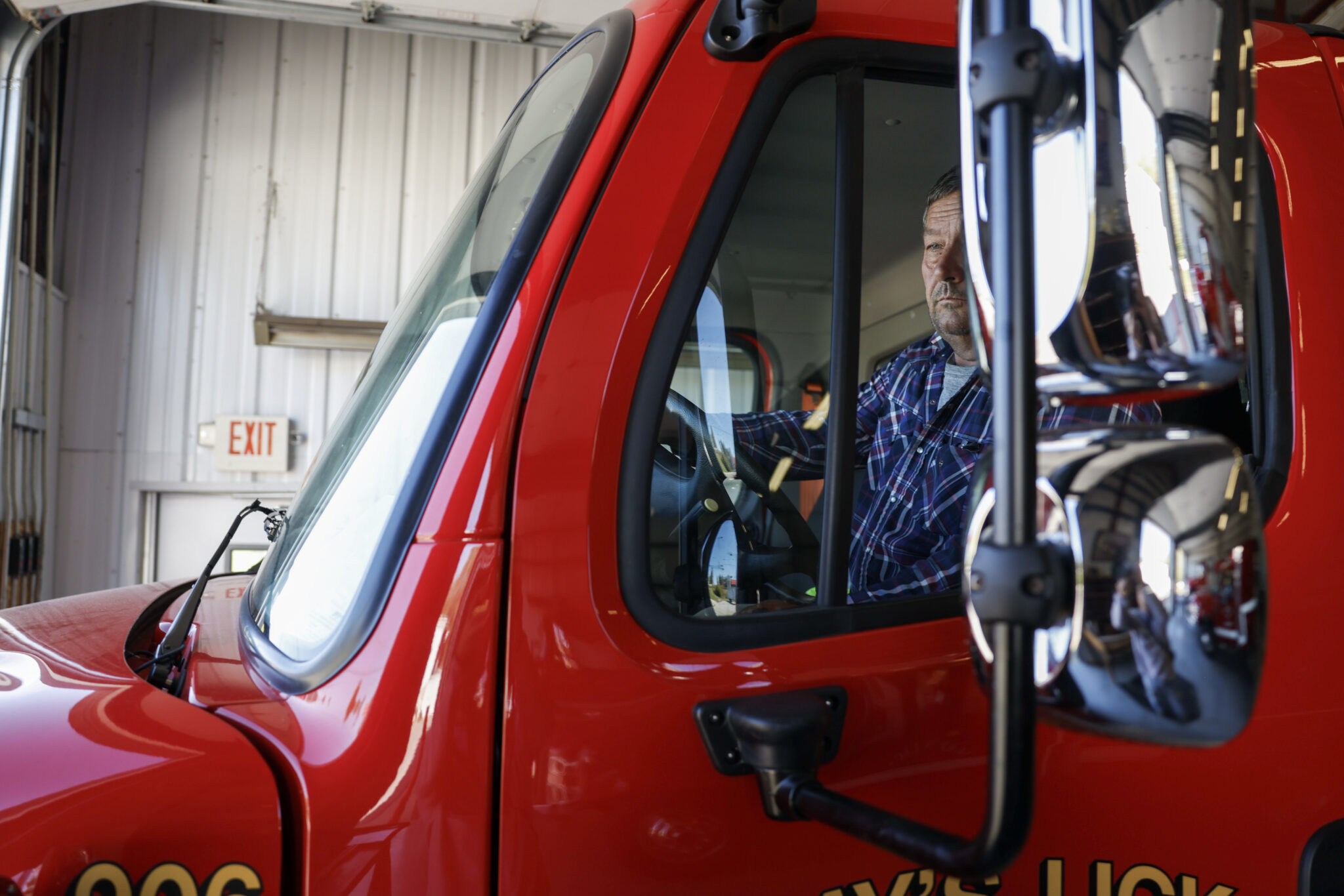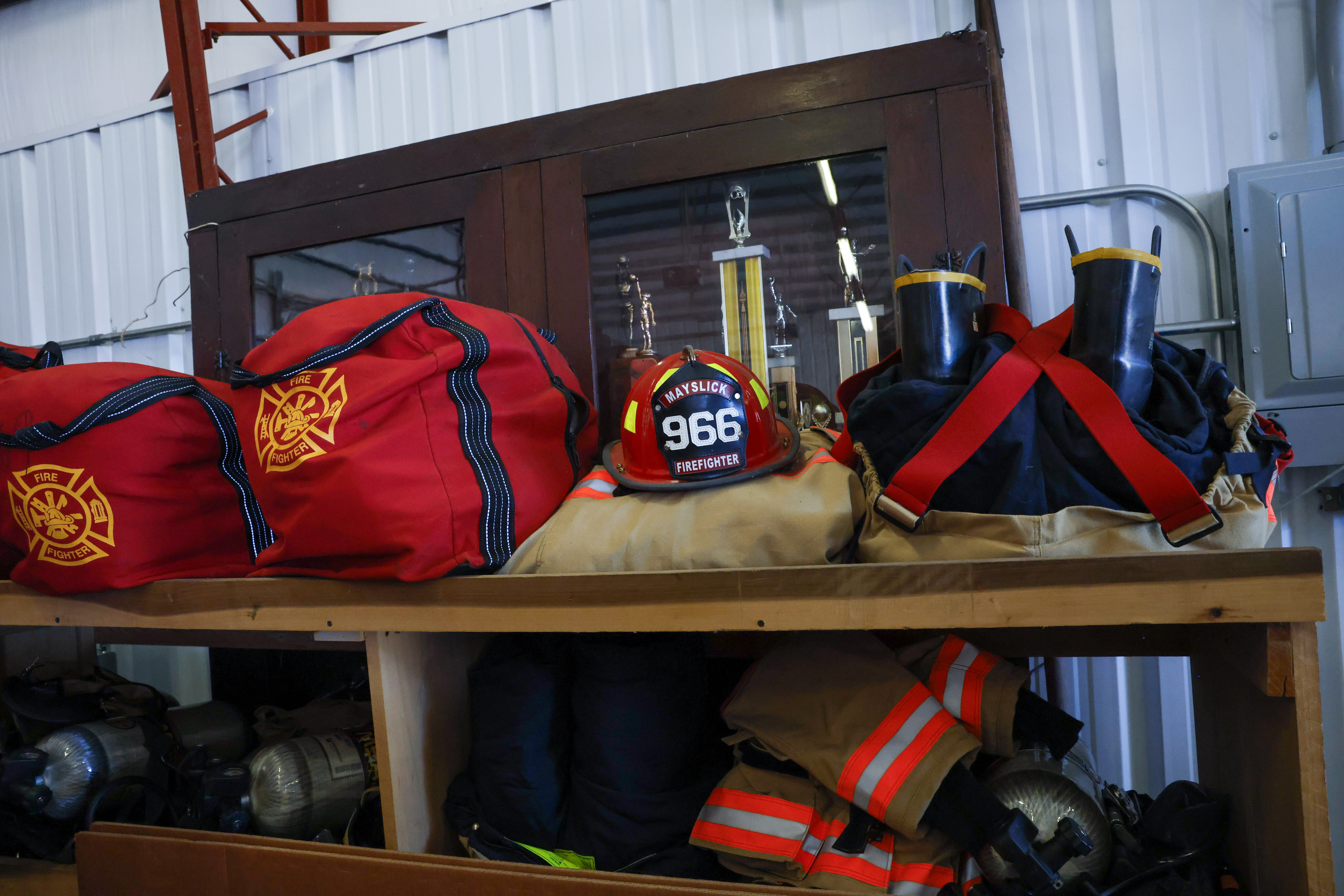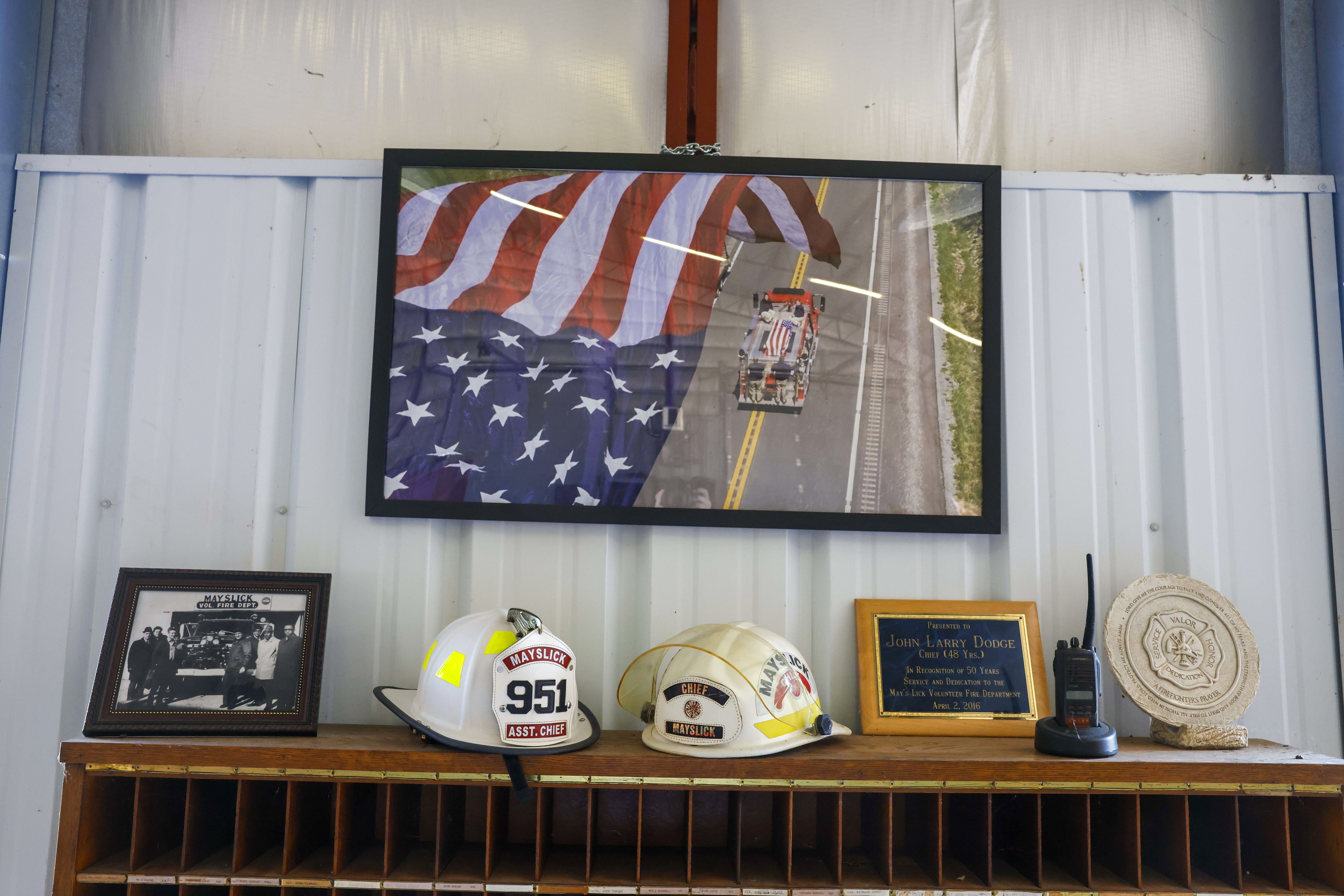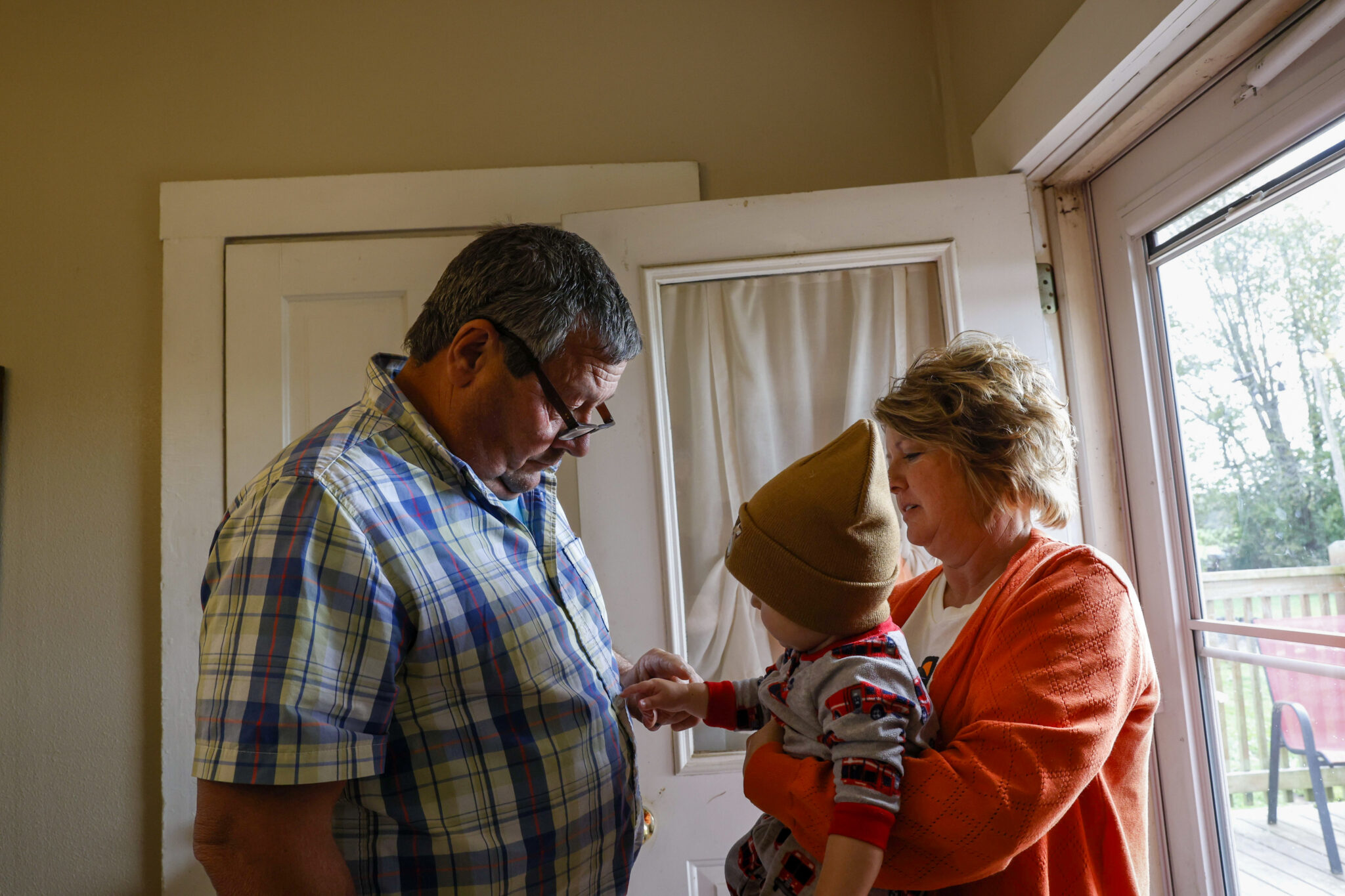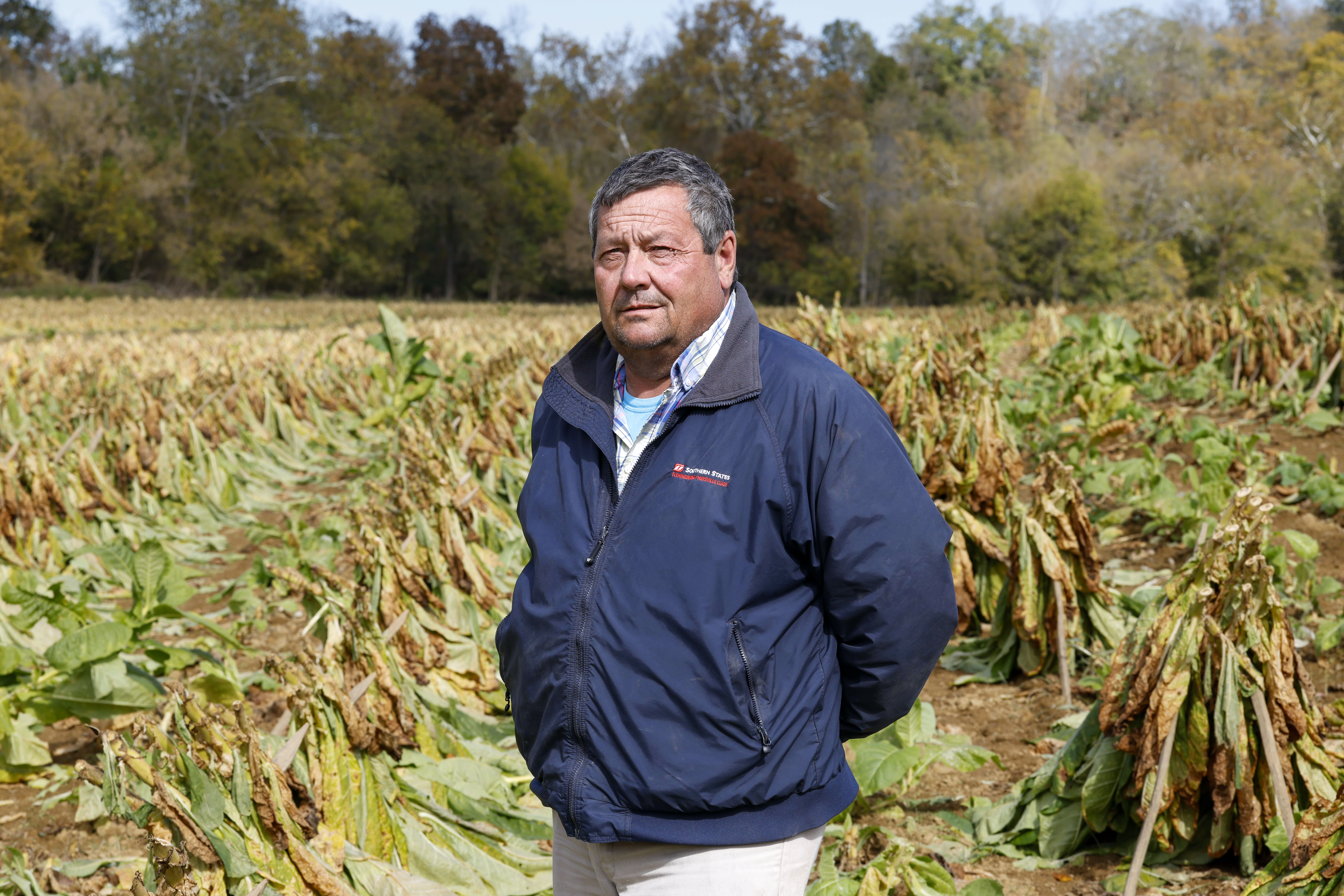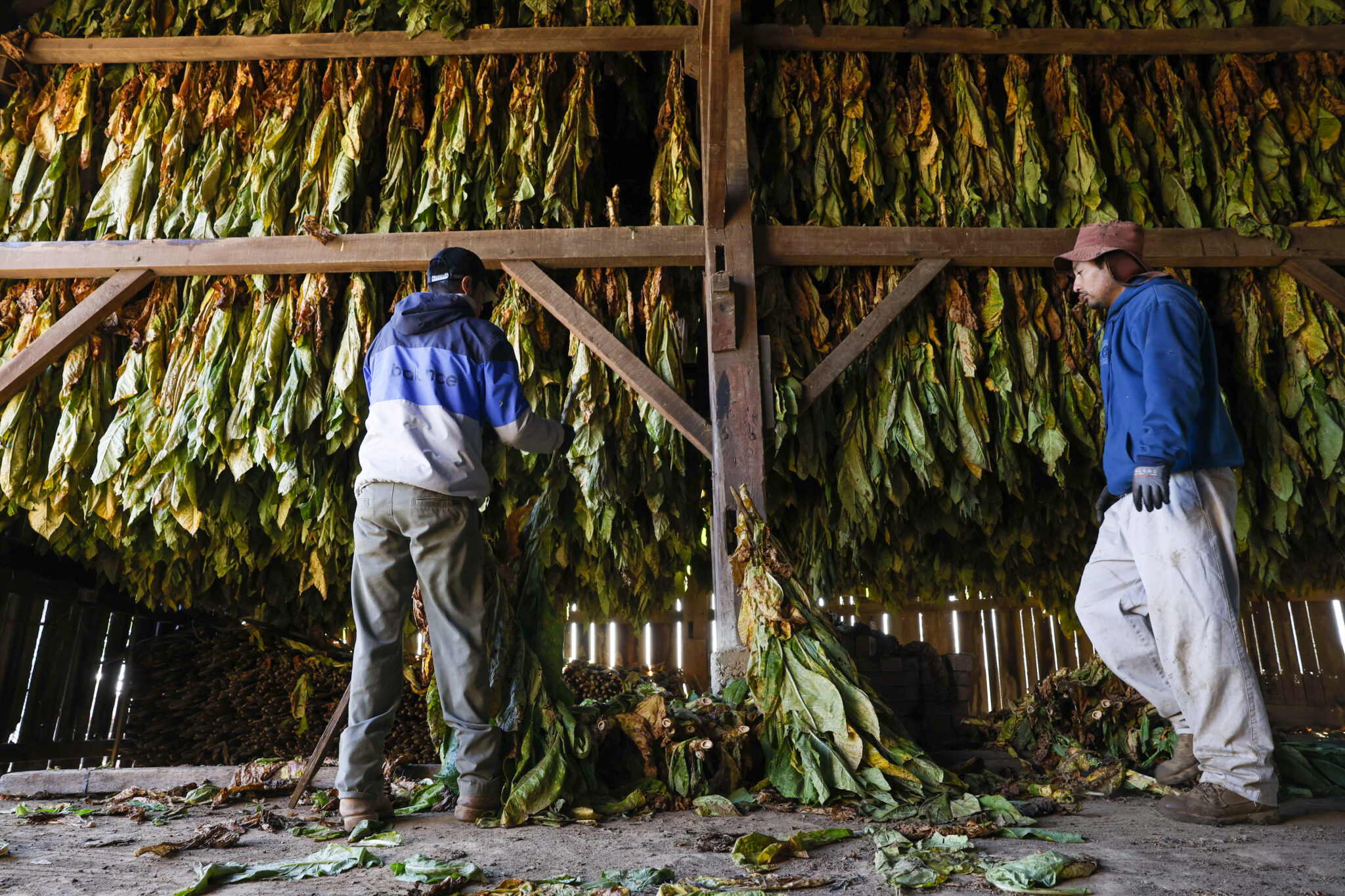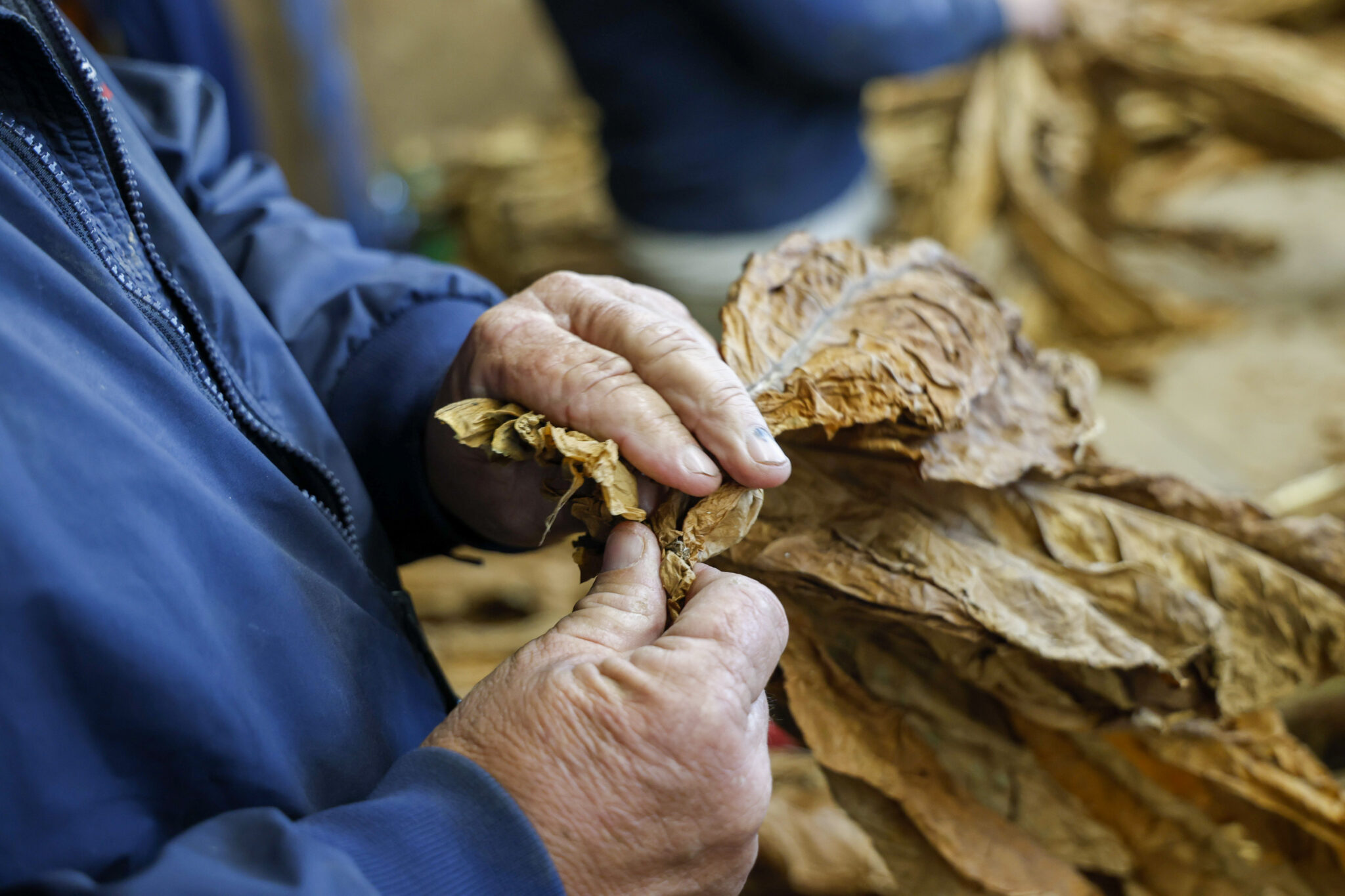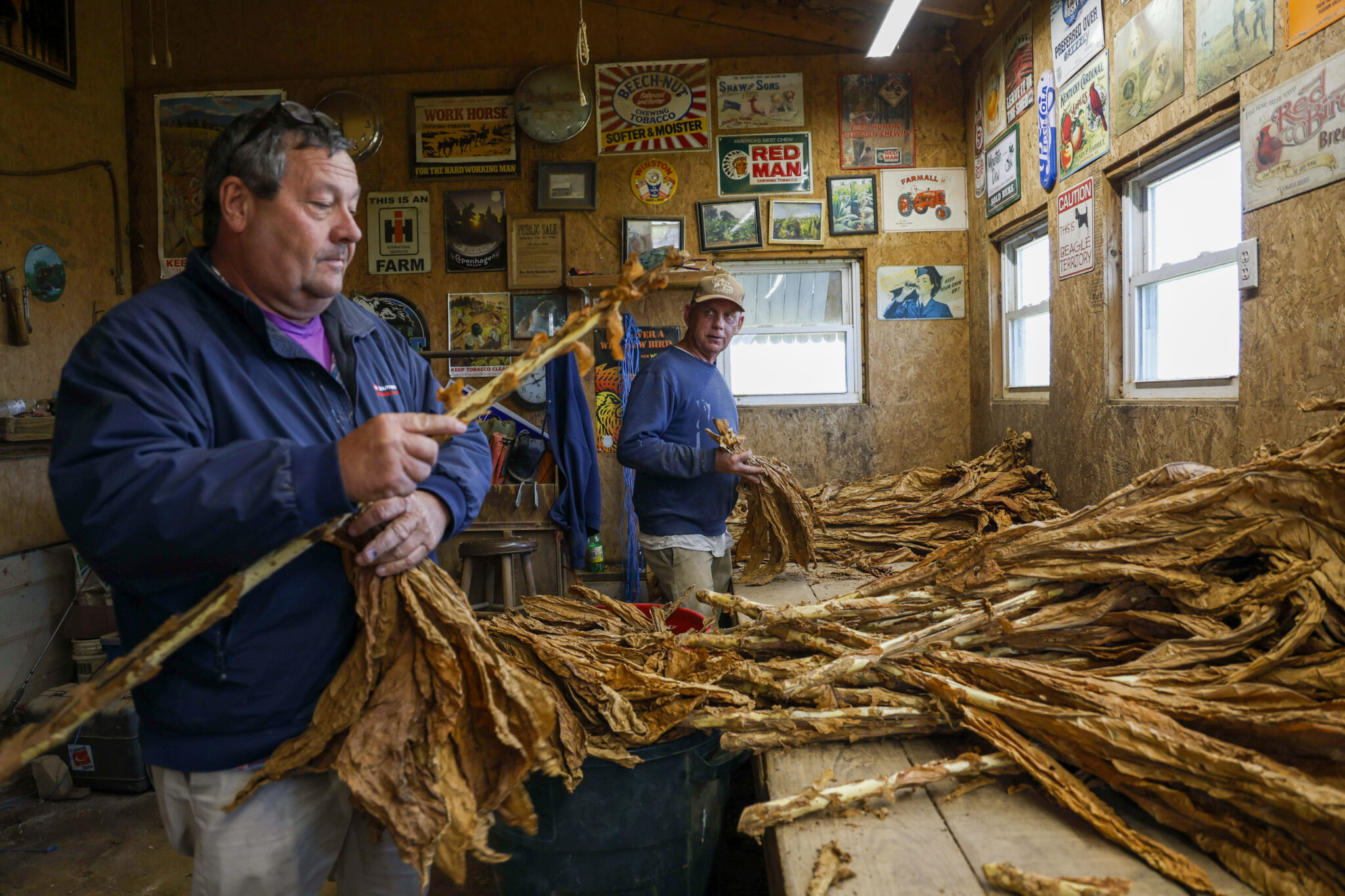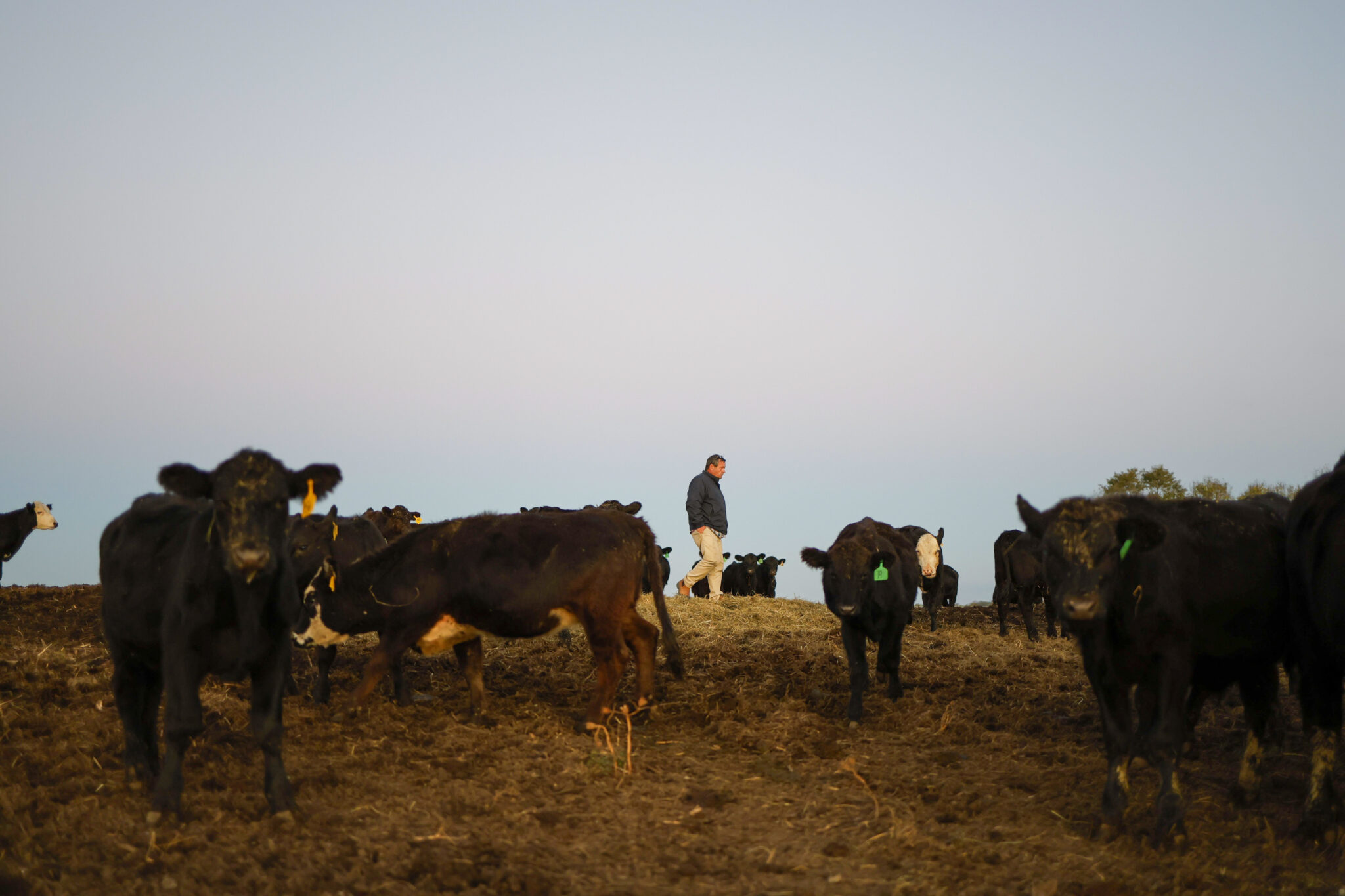With the grass still coated in dew and his cattle already fed, Jason Gifford drives his Chevy pickup truck down a hill past empty flatbed trailers, stopping just before a field of freshly harvested burley tobacco.
The static and muffled voice of an emergency dispatcher projects from a cell phone sitting in the cup holder. Jason, 55, starts his day just before sunrise, and is quickly reminded of the lines that are blurred among his around-the-clock responsibilities.
Jason owns more than 2,500 acres of farmland on which his family lives, including 260 acres devoted to tobacco. Jason, his wife, Melissa, and their son, John, live in the main farmhouse while daughter Ashley Massey and her husband, Nathan, and their 11-month-old son, Jase, also live on the property. Seventeen migrant workers from Mexico, who work full time growing and harvesting tobacco as part of the H-2A federal work program, live in three houses on the property. The program allows farmers to bring migrant workers to the United States to fill seasonal agricultural jobs.
Just down the road from the farm sits a white building housing the May’s Lick Volunteer Fire Department’s fire trucks. As fire chief, Jason is on call 24/7 listening for emergency calls from his phone, dropping his farming and family duties to make a quick response whenever need be.
Regardless of whether he’s at the firehouse or on a neighbor’s farm, Jason is always at the center of the community that he’s built in May’s Lick. On a sunny fall day he was in a small room in the barn of his close friend Mike Miller as tobacco was stripped from its stalk, sorted, bailed and then packaged for distribution.
“Jason here takes care of us and all the stuff. You know if it wasn’t for Jason, we wouldn’t even be doing this stuff,” Mike said as he and his brother, Ricky Miller, worked on their tobacco. “He’s just about ready to walk on water.”
Tobacco farms have dwindled since 1995 when Jason and his family first moved to their current home. His farm is one of only a handful left in an area where tobacco “was a mainstay of this community . . . We can tell the difference.” Jason said.
Despite the decline, Jason produces approximately 550,000 pounds of tobacco per year, with contracts from large tobacco companies such as Philip Morris USA, R.J. Reynolds and Japan Tobacco International (JTI).
While his farm is successful, other things are more important to him. Jason deeply values his family and those he works with. Throughout his day, he goes on numerous unplanned errands, outside of his normal duties, whether it’s going to get more gasoline for a friend’s lawnmower or helping a neighbor jump their car battery.
“That probably means more than anything we do on the farm,” Jason said. “I think a lot of our community and I try to help do whatever we need to do.”
